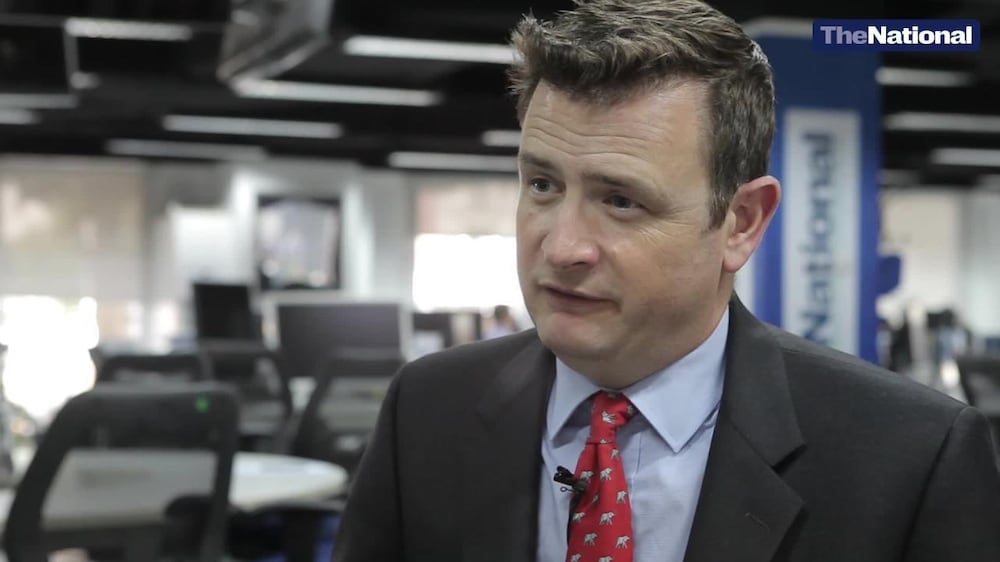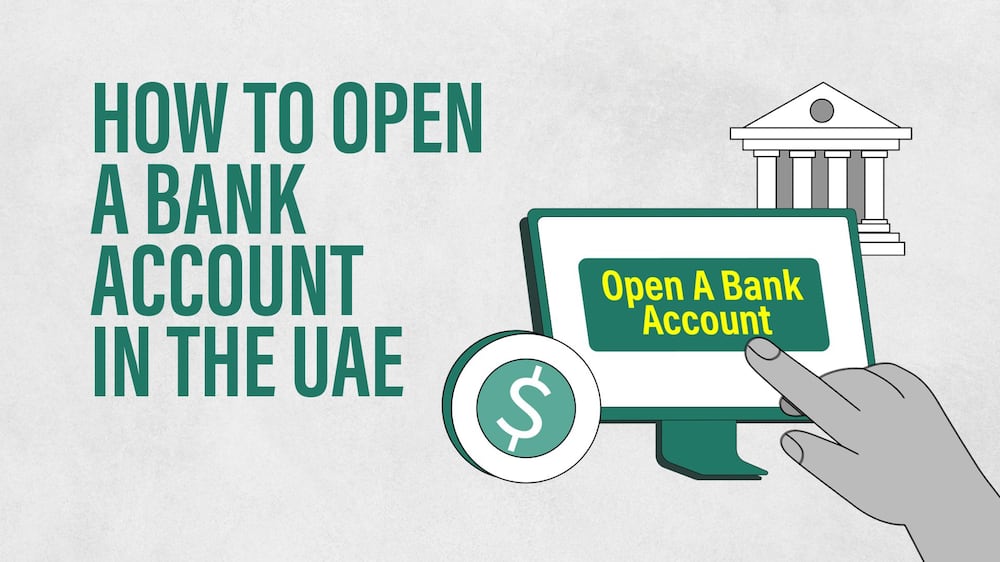Choosing which financial institution to bank with is one of the first decisions people make when moving to a new city such as Dubai or Abu Dhabi. Next comes how to handle your finances through borrowing, saving and investing.
We help new arrivals to the UAE to find a bank, look at credit facilities, invest and find the right financial advice.
How to choose a bank in the UAE
There is an array of banking options in the UAE, both international and local, with personal finance experts recommending using a financial comparison site to check eligibility criteria, interest rates, fees and charges for bank accounts, loans and credit cards.
Ambareen Musa, chief executive of financial education platform Yabi by Souqalmal, says new arrivals to the UAE should also read up on Islamic banking terms such as profit rates, as all residents – Muslim and non-Muslim alike – have access to both conventional and Islamic banking products.
Ms Musa also recommends comparing remittance services if you intend to send money home, and keeping your home bank account active, although you may need to convert it to a non-resident account to allow inward remittances.
Ask friends and colleagues who they bank with, says Steve Cronin, the founder of DeadSimpleSaving.com, and choose a bigger, local bank or a major international bank to “reduce the risk of banking problems”.
You may also want to consider having accounts with two different banks in case one freezes your account when you later switch jobs, he says.
If you already have an account with a bank offshore, picking the same bank in the UAE will make transfers faster, says Rasheda Khatun Khan, a wealth and wellness expert, founder of Design Your Life and the author of Millionaire Mindset – 6 Steps To A Wealthy Life.
She also advises signing up with the financial institution your employer banks with – it will help if you later need to borrow money.
How to open a current account
Opening that all-important current account is key to get your life financially started in the Emirates.
As a new arrival in the UAE, opening a current account with a bank will typically require a residence visa and an Emirates ID, says Vijay Valecha, chief investment officer at Century Financial.
“These are standard requirements across most banks in the country. A valid residence visa is a must that is typically sponsored by your employer or a family member who is already a resident in the country,” he says.
“The Emirates ID is a mandatory identification card for residents in the UAE. It needs to be applied and received before you can open a bank account. The Emirates ID serves as an official identification document.”
Other important documents would be original and photocopy of your passport and proof of address, such as a tenancy contract or utility bill in your name, Mr Valecha says.
Without a residence visa and Emirates ID card, a new resident will only be able to open a basic savings account and then only with certain banks, according to Keren Bobker, an independent financial adviser and senior partner with Holborn Assets in Dubai.
There is not a “best bank”, but it can be useful to select one where you can access a branch with ease if you should need to, she suggests.
Look for good online banking and low charges on transactions, she says.
Opening a bank account for non-working partners
The steps to open an account for non-working partners in the UAE, regardless of gender, are generally similar to those for working individuals.
However, since non-working partners may not have a residence visa sponsored by employment, the process may differ slightly, Mr Valecha points out.
Prepare the necessary documents for the account opening process such as original and photocopy of your passport, spouse's passport copy (the sponsor), marriage certificate (attested and translated into Arabic, if necessary), original and photocopy of spouse's Emirates ID, proof of residence address, such as a tenancy contract or utility bill in your name or your spouse's name, he says.
“Since the non-working partner is typically dependent on their spouse's sponsorship, the bank may require details of the sponsor's employment, including their salary, job title and company information. This is to establish the financial capability of the sponsor to support the account,” he adds.
It is recommended to call the bank beforehand to confirm the required documents and any additional requirements specific to non-working partners.
“It is not necessary to have a regular salary to open a UAE bank account. In fact, it has never been mandatory, but few banks promote this option,” Ms Bobker says.
“Most banks offer a non-salary account. These generally have online banking, a cheque book and a debit card. Credit is not usually available in the form of a credit card. The majority have a minimum balance of Dh3,000.”
“As UAE bank accounts can be frozen for multiple reasons, for example, on change of job or on death, my recommendation is that a husband and wife should have separate accounts with different banks. It’s a precautionary measure. Money that is kept in the UAE can then be divided between the accounts.”
Can children open a bank account in the UAE?
Opening a bank account for children in the UAE can be done with the assistance of a parent or guardian. A parent or legal guardian will need to accompany the child to the bank to initiate the account opening process, says Mr Valecha.
“This is because minors cannot legally enter into contracts on their own,” he says.
Prepare the required documents for both the teenager and the accompanying parent/guardian.
Under an overhaul of visa regulations in 2021, teenagers aged 15 to 18 in the UAE can apply for a part-time work permit. Teenagers must have a valid residence visa and their parents also need to give their permission for their children to apply for the permit.
“Regarding teens working part-time, some banks may offer specific accounts that cater to their needs. It's recommended to inquire with the chosen bank about any specialised accounts available for working teens and the requirements associated with them,” Mr Valecha says.
Ms Bobker says UAE banks do not seem overly keen on focusing on the teenage market, so there is not a great deal of publicity for these accounts. However, there are plenty of options these days.
Most banks have some variation that can be found by searching on their website, she says.
“A complication is that anyone under the age of 18 years cannot open an account on their own and must have a guardian do this with them, usually the father. These accounts can come with a debit account for children aged 13 and over,” Ms Bobker says.
How to get credit cards and loans in the UAE
Access to debt facilities as a new resident may vary depending on your individual circumstances, employment status and the policies of different financial institutions.
Provided one has a residence visa and ID card, plus a regular salary, they are usually offered credit by their bank soon after opening an account.
“I urge caution here as banks can be far too ready to lend money without being entirely clear of the consequences of not meeting repayments,” Ms Bobker warns.
“Interest rates on credit cards are very high, so it is important not to build up a balance as it becomes very costly. And people can end up wasting thousands of dirhams on interest.”
Some credit agreements, whether for a credit card or any kind of loan, are subject to salary payments being made to the lending bank, she says.
Non-payment of debt is still a serious matter in the UAE and getting into financial difficulties can have major adverse consequences, Ms Bobker explains.
Meanwhile, Ms Khatun Khan says securing a loan to pay the rent is a “common pitfall” for new arrivals, who then fall into a “cycle of debt”.
Rent is a really big outlay, she says, so some borrow to cover it – but the loan takes two years to pay off so next time the rent is due, “you’re short again”.
Mr Valecha says establishing a credit history in the UAE can take time, so new residents may face challenges in having access to certain types of debt initially.
“As a new expat, you may need to provide proof of employment, such as a job offer letter or employment contract, to demonstrate your ability to repay the debt. Banks generally require applicants to have a minimum income to be eligible for debt facilities,” he says.
“The income threshold may vary depending on the type of loan or credit card. Higher income levels may increase your chances of approval and may also affect the loan amount or credit limit you can obtain.”
For certain loans, such as car loans or home loans, banks often require a down payment or collateral as security, he says.
Can you offshore banking from the UAE?
Follow the “ABC rule of expat banking”, says Sam Instone, chief executive of financial advisory AES International. “If you are from country A and you live in country B, you should bank in country C.”
An offshore account protects accrued capital, offers services designed for residents, acts as a “perfect platform” for wealth management and gives peace of mind, he says.
“There’s no need to keep more than three to six months of expenses in a UAE bank account,” says Mr Cronin. “Everything else should be moved offshore.”
Major international banks provide offshore bank accounts that can be linked to your UAE account, he says, but they may require $50,000 or more. An alternative he suggests is investing in property or stock and bond exchange-traded funds, via an offshore broker.
Ms Bobker says an offshore bank account is a useful tool for most residents.
“They don’t get frozen as local accounts can, Sharia will not apply and there is the option of flexible multicurrency accounts,” she says.
“This allows someone who wants to move money outside the UAE to manage their currency transfers more effectively. These accounts are not just for the rich and some banks have minimum balances as low as $7,000 [Dh25,760].”
High-net-worth individuals who have significant assets and wealth may opt for an offshore bank account in the UAE, Mr Valecha says.
Offshore accounts can provide access to sophisticated wealth management services, including investment opportunities and asset protection. These accounts may offer a higher level of privacy and confidentiality, he says.
Residents involved in international business transactions or those who run businesses across several jurisdictions can also benefit from an offshore bank account, he adds.
These accounts can support cross-border transactions, provide multicurrency capabilities and offer specialised business banking services.
“If you have investments in other countries or plan to diversify your investment portfolio globally, an offshore bank account in the UAE can be advantageous. It allows you to hold and manage investments in different currencies and access international investment opportunities,” Mr Valecha says.
However, offshore banking involves navigating complex regulatory frameworks and requires careful consideration, experts warn.
Credit scoring in the UAE
Al Etihad Credit Bureau is in force in the UAE, awarding credit scores for all residents.
New UAE residents can use their home country credit histories to speed up the process when applying for financial servicesunder a new partnership between the AECB and US-based cross-border credit bureau Nova Credit.
The “credit passport” agreement, the first in the GCC region, provides the UAE's local and international financial institutions and banks real-time access to the translated home credit histories of new residents who have not had enough time to build a credit score in the UAE.
The credit passport is now available for AECB subscribers to support credit applications from new residents with a financial history in countries such as India, the Philippines and the UK, the credit bureau said.
Other countries will be added in the near future, it said in March.
Nova Credit also serves people coming from Australia, Brazil, Canada, the Dominican Republic, Kenya, Mexico, Nigeria, South Korea, Spain and Switzerland, according to its website.
“UAE banks don’t check on a home country credit record, except in some cases when a large mortgage is required. Instead, they simply look at the salary and require the individual to be permanently employed, so out of a probation period,” Ms Bobker says.
Some common criteria used by banks to assess the creditworthiness of new residents include employment stability and income, debt-to-income ratio, references and guarantors, according to Mr Valecha.
Be aware that banks will check both your salary and how much disposable income you have, says Ms Khatun Khan, so live within your means.
“If you reach 50 per cent of your income-to-debt ratio, banks will not keep loaning you money.”
Saving and investing in the UAE
The tax band you were paying in your home country should be how much you aim to save in the UAE, says Ms Khatun Khan. But start saving straightaway, she says, even if it is only 5 per cent.
“It’s easier to increase than to start, a year down the line,” she says.
Keep your end goals in mind, write them down and “keep them somewhere visible – the fridge, your workstation”, Ms Khatun Khan adds.
Living expenses should be no more than 70 per cent of income, she says, and it is good practice to keep a month’s salary as cash for miscellaneous expenses.
Putting your money to work and investing 20 per cent to 50 per cent of your income should mean that a few years in the UAE make a “big difference” to your finances, says Sebastien Aguilar, a Dubai resident who heads the non-profit investment community SimplyFI.org.
But he advises new residents not to be overexcited and “inflate their lifestyle too much”.
“The number one factor influencing how much wealth the average expat will build is his/ her capacity to save,” he says.
Draw up a monthly budget so that you manage your spending. It is too easy to spend large sums but the smart option is to save a cash sum each month before you spend, Ms Bobker recommends.
You need to have an emergency fund of a minimum of three months’ outgoings, more if you have children and that needs to remain in cash.
Ideally, this is offshore or in a home country, so it cannot be frozen and in an account where you can have access to it fairly quickly, she suggests.
“After that, you can look at investing, but do not make any major commitments in the first few months. You also need to avoid long-term contractual savings plan with high charges and exit penalties as there are better and more flexible options,” she warns.
“You also need to be aware of potential home country tax issues, if not now, then in the future, so genuine advice on structuring and real financial planning is useful. Ignore all cold callers!”
Sam Instone on the reputation of long-term savings plans

What is the best financial advice?
Securing trustworthy financial advice can be tricky in the UAE. Beware of any advisers that cold call shortly after you arrive, says Mr Cronin of Deadsimplesaving.com.
“Financial advisers prey on new arrivals as ‘fresh meat’ – people who haven’t yet heard about the risks of investing in a long-term savings plan or whole-life insurance scheme,” he says.
“Most of these advisers receive huge commissions for selling you a plan, so they will not act in your best interests.
“As a good rule of thumb, don’t trust anyone receiving commission rather than charging for their time. Never accept total fees of more than 2 per cent for anything.
“Always avoid any investment offer that promises you more than 10 per cent return per year – it is most likely a scam.”
Mark Zoril, a US-based financial adviser, suggests asking for an email detailing how much the adviser receives in compensation if you work with them.
“If they are recommending an investment product, you should clearly know how much their compensation will be in the first year and in subsequent years,” he says.
Andrew Hallam, author of Millionaire Expat: How to Build Wealth Living Overseas, says some financial salespeople flog schemes with the highest investment fees in the world.
“Over a period of 10 years or longer, expats that fall victim to such products have virtually no chance of beating inflation,” he says.
If you do buy into a regular investment scheme, make sure you can sell at any time without penalty – and ensure you have that in writing, Mr Hallam adds.
Instead, Mr Aguilar, of SimplyFI.org, advises working with a fee-only adviser, considering a “robo-adviser” – a platform automating index investing, consequently with low fees – or learning how to invest for yourself.
“The overall cost to invest then drops to the minimum possible,” he says.
Banks in the UAE
- First Abu Dhabi Bank
- Emirates NBD
- Abu Dhabi Commercial Bank
- Mashreq Bank
- Commercial Bank of Dubai
- Dubai Islamic Bank
- Emirates Islamic Bank
- Abu Dhabi Islamic Bank
- Sharjah Islamic Bank
- National Bank of Ras Al Khaimah
- National Bank of Fujairah
- National Bank of Umm Al Quwain
- United Arab Bank
- HSBC
- Standard Chartered








